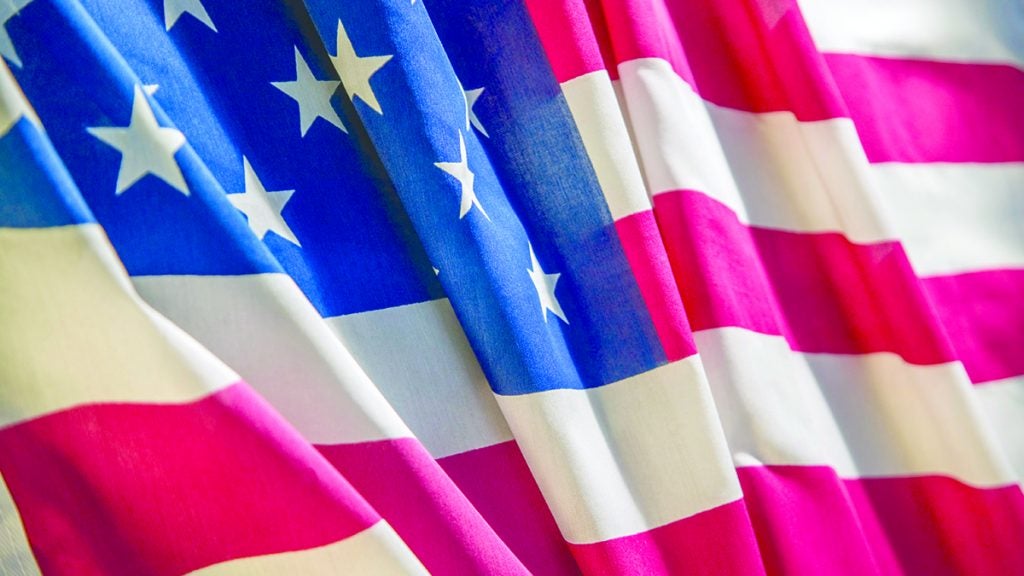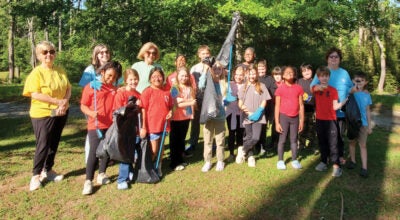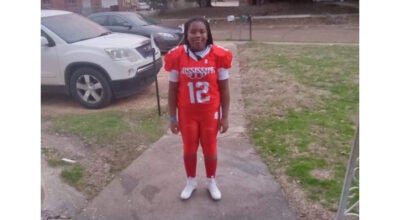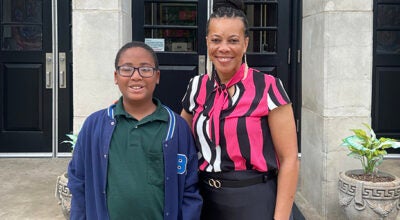A free press is critical to America
Published 10:23 pm Friday, January 5, 2018
This is the first in a series of stories about protections guaranteed by the First Amendment.
U.S. Supreme Court Justice Hugo Black said in 1971 that the press was to serve the governed, not the governors.
Freedom of the press, which is protected by the First Amendment, is critical to a democracy in which the government is accountable to the people. A free media functions as a watchdog that can investigate and report on government wrongdoing. When press freedom is harmed, it is much harder to hold our government accountable when it missteps or overreaches.
And, unfortunately, it does.
In this series about the First Amendment, The Daily Leader looks at Americans’ protections under the Constitution. The First Amendment, adopted into the Bill of Rights in 1791, protects the right of the people to freedom of religion and freedom of expression from government interference. It prohibits any laws that establish a national religion, impede the free exercise of religion, abridge the freedom of speech, infringe upon the freedom of the press, interfere with the right to peaceably assemble, or prohibit citizens from petitioning for a governmental redress of grievances.
Public officials in Lincoln County understand the value of a free press, because the press represents the people, said Lincoln County Sheriff Steve Rushing. Taxpayers should understand that the press represents them as watchdogs.
“It helps keep us accountable,” he said. “People have the right to know everything we do.”
Rushing makes a point to work with the media during investigations, to get accurate information relayed to the public in a timely, effective manner, he said.
Not all public officials do that.
Pulitzer-Prize winning reporter Anita Lee is one of those media watchdogs who has uncovered corruption for the public.
Lee is a native Mississippian who started her career as a feature writer at the Jackson Daily News, then transitioned to news reporting. She has won national, state and regional awards for investigative and in-depth reporting, and feature writing. She has also worked as a reporter at The (Norfolk) Virginian-Pilot and has since 1987 worked as a reporter and editor at the Sun Herald on the Mississippi Coast.
At the Sun Herald, Lee worked with another reporter to expose the Dixie Mafia’s presence in South Mississippi and its connection to a politically prominent Biloxi couple. She reported abuses at a county-owned nursing home, leading Harrison County to immediately fire the administrator and eventually close the home.
She has also worked with other Sun Herald reporters to expose malfeasance within the Mississippi Department of Marine Resources and report on a public health system’s attempts to mislead employees who were unaware their pension plan was failing.
In the case of the DMR coverage, the Mississippi Press Association recognized the Sun Herald’s use of, and fight for, public records with the 2014 Daniel M. Phillips Freedom of Information Award.
Lee is a vocal proponent for the people’s right to know.
“When agencies or individuals try to shut off information, the person seeking the information becomes suspicious that something is being hidden. The public understands this. In some cases, they demand answers. Whether they get those answers or not is another matter,” she said. “The public has already lost when public records are withheld or access denied. They are not getting the information they are entitled to in a timely fashion. In some cases, whistleblowers within an agency will start supplying records anonymously because they believe the public deserves answers. I have seen this happen with countless stories.
“In other cases, a member of the public or the media goes to court for the information, another losing proposition because of the time and expense involved. If you’re trying to report on a current event, it becomes less timely, and in some cases irrelevant, when you’ve waited a year or two to get your hands on the records.
“But court action is at times necessary to ensure the law is followed.”
Leonard Van Slyke is a media law attorney with the Brunini law firm in Jackson and operates a hotline for the Mississippi Center for Freedom of Information. He believes strongly that the press — and thus the people — should not be shut out.
“Any attempt to weaken press freedom weakens the country,” he said. “An informed voting public is essential to maintaining a free society.”
Slyke said in an opinion piece written in nearly 10 years ago, but that is still valid today, that the Supreme Court and most trial courts in the state have been steadfast in enforcing the law as written.
“The problem is not the courts,” he said. “It also should be said that many public officials do their best to follow a course of openness. Unfortunately, some others do not. The real problem has been the Legislature’s unwillingness to provide the appropriate mechanisms, procedures and enforcement measures to make state and local government truly open. The laws which govern openness in Mississippi are known as The Open Meetings Act and The Public Records Act. Together, they are frequently referred to as the ‘Sunshine Laws’ or Freedom of Information laws.”
Lee believes Mississippi has some of the weakest public access laws in the country. The Legislature adds exemptions with regularity, she said. She also doesn’t think all information should be public information.
“Social Security numbers, for example, should be redacted from public records. I have also agreed up front to have competitive business information redacted from government contracts. There are many other examples,” she said. “Police incident reports are public record. In some cases, they include helpful narratives of reported crimes or traffic stops. In other cases, they are abbreviated to the point that they are no help.”
Courts and court records are open to the public unless a judge seals a specific record or closes the courtroom. This is not supposed to happen without a hearing and until the judge determines that the suspect’s right to a fair trial will be jeopardized, she said.
“Judges don’t always follow this process, however,” she said. “We (The Sun Herald) have had to go to court to open records that judges sealed without first holding hearings and applying the legal test for sealing those records. In the two instances that I recall being involved in, judges unsealed records after we argued sealing them did not meet the test outlined in federal law. Both cases were federal: judicial bribery and the Sherry murder conspiracy.”
In a world where “fake news” and social media are often confused with real journalism, Lee believes the press’ credibility is questioned unfairly.
“There are distinctions between journalism and ‘citizen journalism,’ namely, ethics training, training and experience in fact-checking, interview techniques and research,” she said. “In America, we are theoretically free to speak truth to power. I do believe generalizations about ‘fakenews’ are harmful and erode the media’s credibility. The media has to be more vigilant now than ever to present accurate news, which is not a bad thing.”
Lee said social media has made it easier and more difficult to report the news.
“Social media makes it easier to find out what’s important to the community and get in touch with sources for articles,” she said. “But social media has also increased the public’s demand for immediacy and the competition to publish information first. Rushed reporting leaves more room for error. Professional journalists must and do stick with fact-checking, source-checking and all the things we do to vet a potential story — even when we are in a hurry.”
Van Slyke said it’s difficult to define who is “the press” with the advent of bloggers and social media.
“Professional media adhere to a set of ethics that require responsible reporting,” he said. “Bloggers and social media ‘reporters’ often do not recognize a responsibility to get the facts right. Unfortunately, many people depend on social media for news and lump it altogether as ‘the press.’”
Both Lee and Van Slyke agree that the press is a vibrant marketplace of ideas, a vehicle for ordinary citizens to express themselves and gain exposure to a wide range of information and opinions.
“I wish the public understood the difference between editorials and news stories,” she said. “I wish they were better able to differentiate between legitimate journalism and websites, blogs, etc., that publish information imbued with a specific point of view, whether liberal, conservative or other. Journalists and publications manned by journalists need to do a better job of differentiating between news and opinion, particularly online.”
“I wish the public realized how important it is to be informed and worked harder at understanding what is responsible reporting and what is not,” Van Slyke said.
Newspapers — or any individual — can publish just about anything, although there are exceptions. Libelous content can be in risk of a lawsuit. However, views that the government doesn’t like are protected. There are times when the press is limited, and can be sued for reporting information that is proven to be libelous.
“Libel and slander are two sides of the same coin,” Van Slyke said. “Libel refers to the written word and slander to the spoken. Truthful reporting always trumps defamation. There is also a higher standard for public officials and public figures to prove defamation as this country encourages public discourse and debate as a matter of policy.”
“Generally, libel is a false statement that harms someone’s reputation,” Lee said. “Slander is oral defamation. Truth is a defense to libel. If a public figure sues for libel, they must prove the report was written with ‘reckless disregard for the truth.’”
It’s important to understand that in most cases, freedom of the press is identical to freedom of speech under the law. Members of the media enjoy the same rights — and are subject to the same restrictions — as members of the general public.






